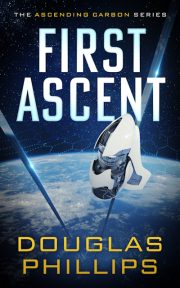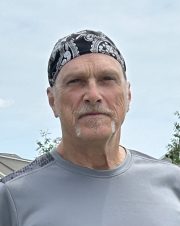Creating a Reading Series For Your Town
At the 2017 Nebulas, I presented what we’ve learned about running a reader series in Seattle and Portland with hopes of assisting anyone interested in running a series in their home town. I’m following up that presentation with this written summary; let me know if you find it useful or have any further questions.
Let’s start with an overview of the Portland and Seattle series. Four times a year, we invite authors to read their work in front of an audience. We start at 7pm and run until 8:30 pm. Each event features three readers, each reading for twenty minutes. We include a break after two readers and time at the end for question and answer. You can find a complete schedule on the SFWA.org site at https://goo.gl/fff45j. Readers mostly come from the Pacific Northwest, they are invited to read at both Seattle and Portland events, and can expect audiences of somewhere between twenty-five and fifty people.
The issues related to starting a reader series can be summarized with an acronym; VRBA. (Like VRBO [Vacation Rental By Owner] but with an “A” instead of an “O.”) Those letters stand for: V for “Venue,” R for “Readers,” B for “Books,” and A for “Audience.”
VENUE
The venue is the most difficult part and we’ve learned several success factors from experience and surveys. Don’t underestimate the importance of a good venue; noisy venues without parking will bring your reader series to a quick finish.
Important considerations, in priority order, are: ambient noise, parking/accessibility, food, beer/wine, and cost.
Noise: Don’t run your reader series in a coffee shop with a cappuccino or frappuccino machine in the same room. Every time someone orders a fancy drink, that machine will prevent the audience from being able to hear the speaker. Coffee shops are tempting – but problematic for this reason.
Both Portland and Seattle reader series happen in bars with separate event rooms. These separate rooms prevent drunks from disrupting your reading and muffles the ambient kitchen noise. Unfortunately, this may cost something to arrange; I’ll discuss it below in the section on costs.
Parking/accessibility: Personally, I was surprised how important this is to our attendees, but it makes sense. If someone can’t get to the event, they won’t attend the event. Some attendees will ride the bus, some will bike, some will drive. When you pick your venue, look for a parking lot with handicap parking spots and easy distance to the bus. Remember that SFWA events should be handicap accessible.
Food, Beer, and Wine: Most people will show up after work and they’re hungry. Some want dinner, most want a drink. Importantly, it’s what keeps the venue interested in having you come back. We’ve been told the reader series are profitable for the venues and they are delighted to have 25 hungry and thirsty people suddenly show up.
Cost: Venues have different policies for how much they charge for use of the room. Some venues will give the space to you for free. Some will charge. We pay $100 in Portland, Seattle gets their room for free.
I would caution about hotels with catering fees. Many hotels will ask for an assurance of one or two thousand dollars in food and alcohol sales. If your attendees are big drinkers this can work out, but if your attendance busts for an evening-an unexpected snowstorm, for example-then your credit card will pick up the difference.
READERS
We look for a mix of well-known authors alongside up-and-coming authors. Big name readers help pull larger crowds and generate sales for our booksellers. We prefer readers local to the Pacific Northwest, but are always hoping to coordinate with anyone traveling through our area. When necessary, we give priority to SFWA members.
We are currently scheduling almost a year in advance. We avoid conflicts with major conventions, but we try to coordinate with author book releases and tours.
We are primarily looking for good performers. Reading in front of an audience is theater. Some authors do it well, some do not. I highly recommend taking a public speaking class, theater workshop or review Mary Robinette Kowal’s “Tips for reading fiction out loud” at https://youtu.be/hg7xY_vLL54.
We do not pay travel or expenses. Sad, but that’s the reality of the budget. We do what we can to provide back bedrooms to defray the cost of travel.
BOOKSELLER
In today’s brutal bookstore market, it’s difficult to get a bookseller to attend. But it’s important! Form a partnership with a local bookseller, make sure they know how much you love them. Remember that from their perspective, it’s a lot of work; they haul a bunch of books to your venue, set up, play with money, stay up late, then pack up and head home. Booksellers are really important because they can handle distributed books.
In Seattle, The University Bookstore has been an honored long-time partner. In Portland, we’ve been unable to find a bookstore partner and instead rely on a private individual (Brad Wheeler – our hero!) I provide authors with the option of bringing their own books and selling on consignment, or I will purchase the books at retail cost from a local bookseller on my own credit card. Books that don’t sell are returned; the bookseller is ok with that.
Don’t forget to acknowledge the bookseller. Point out where the books are located. Repeat this several times. Provide time for autographing. Many booksellers may want to keep a few autographed copies for later sales.
AUDIENCE
Think about how you will announce your reader series and get an audience to attend. Our most successful method is word of mouth. Friends attend because their friends are attending. The local library has entire sections about how to build word of mouth, some of that advice is useful.
The second most productive method of advertising is our Facebook page. We don’t buy advertising, instead we just simply note the event as a calendar listing. Our audience tells us they watch this closely.
Third most productive is emails from SFWA. SFWA maintains an event calendar application very much like Eventbrite. You can publish your event and invite people. They can sign up for notifications that are automatically sent out by the system. You’ll need help setting this up, but we’re happy to do it.
NOW – JUMP IN
Running a reader series isn’t difficult but it does require persistence. Be sure to let us know you’re doing it, we’re interested in helping you out with authors, encouragement, and other support. We really want you to succeed.
When you’re ready to get started, contact me, Mark Niemann-Ross. I’ve got useful insights and a willingness to coach you through the process.
•••
Mark Niemann-Ross is a Portland-based writer of hard science-fiction with an emphasis on the impact of technology on society. His short stories have appeared in Analog Magazine of Science Fiction and Fact as well as Stupefying Stories. He is currently working on his first novel, a murder mystery solved by a refrigerator.
In his other earthly instantiations, he works in the software industry, plays jazz bass, raises chickens and has a big mouth billy bass that recites political speeches.



